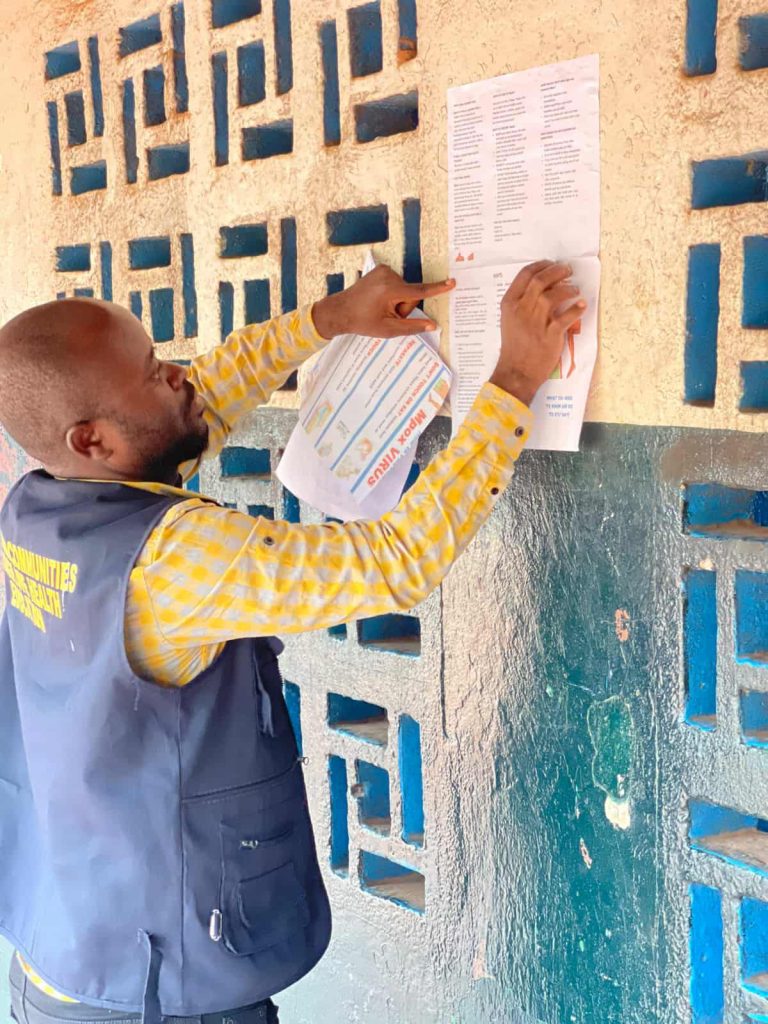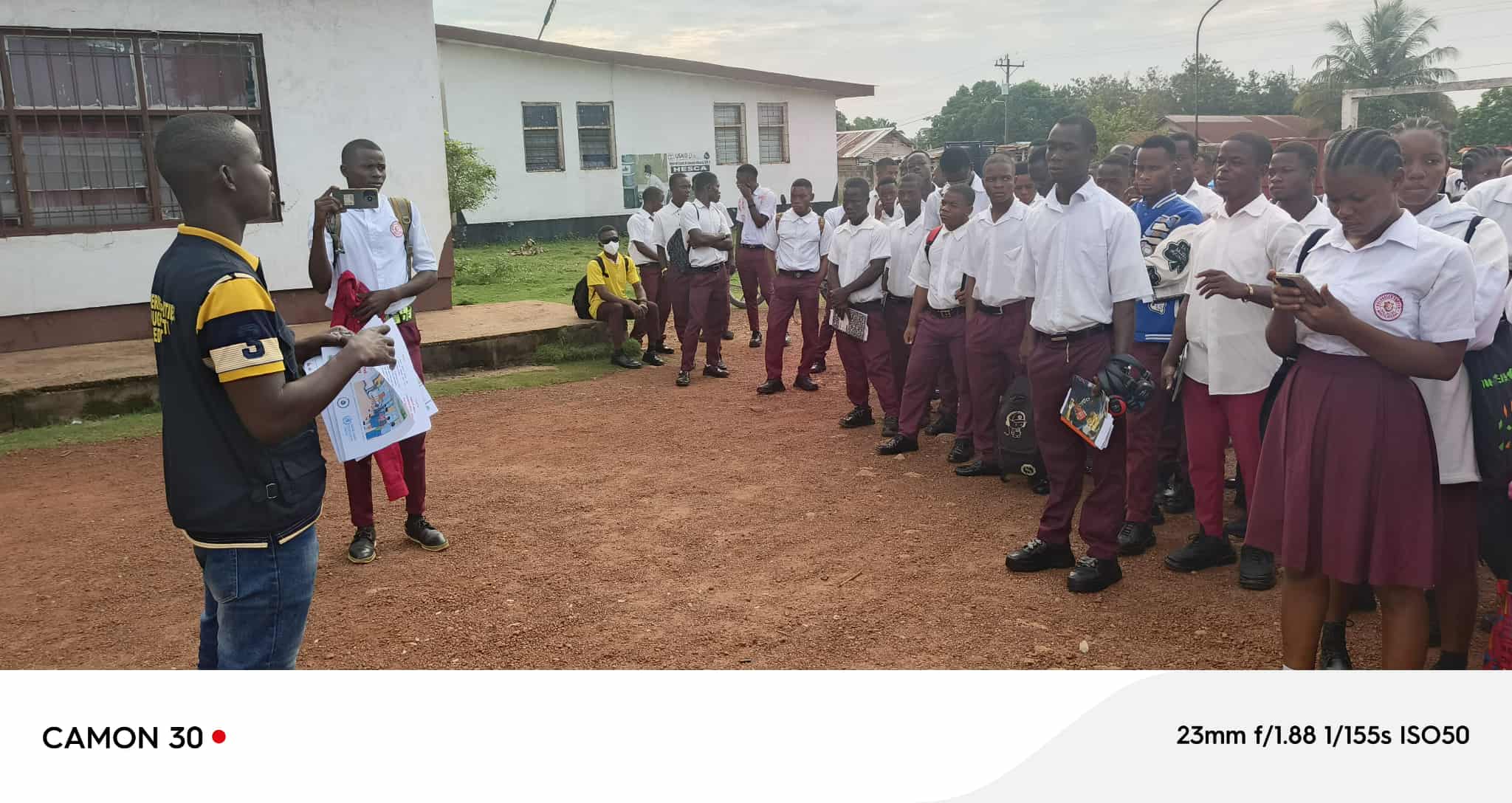In a bold effort to combat the reemergence of Mpox in Liberia, One Health in Action Liberia (OHIAL) has launched a comprehensive school-based awareness campaign across secondary schools in Bong County. The initiative, which began earlier this Week, is already making strides in educating young people about one of the world’s growing public health concerns.
Mpox, formerly known as Monkeypox, is a viral zoonotic disease, meaning it can spread from animals to humans. The virus is caused by the Mpox virus, a member of the Orthopoxvirus genus, which also includes the virus that causes smallpox. First identified in the Democratic Republic of Congo in the 1970s, Mpox has recently resurged, spreading to several countries and prompting global health alerts.
Unlike COVID-19, which spreads primarily through respiratory droplets, Mpox is mainly transmitted through close physical contact, bodily fluids, contaminated materials like bedding or clothing, or respiratory droplets during prolonged face-to-face contact. The disease can also spread through contact with infected animals, especially in areas where humans and wildlife interact closely.
According to public health experts, Mpox typically begins with flu-like symptoms: fever, chills, fatigue, headaches, and muscle aches. These symptoms are soon followed by swelling of the lymph nodes and a distinctive rash that often begins on the face before spreading to other parts of the body. The rash evolves through several stages; macules, papules, vesicles, pustules, and finally scabs, often leaving scars after healing.
While most cases of Mpox are mild and self-limiting, severe illness can occur, especially among young children, immunocompromised individuals, and people with underlying health conditions. Complications can include secondary bacterial infections, sepsis, encephalitis, and in some cases, death. The case fatality rate for Mpox varies, with the more severe Central African strain historically showing rates as high as 10%.
Recognizing the importance of prevention and early detection, OHIAL’s campaign seeks to demystify the virus and empower young people with life-saving knowledge. “Knowledge is protection,” said Mr. John S. Vallah, OHIAL’s Public Health Lead. “By learning the facts about Mpox, we empower our students, protect our communities, and stop the spread of the virus.”
To date, the awareness drive has reached seven secondary schools in Gbarnga, including Bakalu, Gboveh, Lutheran, Philadelphia, N.V. Massaquoi, World Overcomers, and St. Martin’s Catholic High School. OHIAL plans to reach a total of 14 schools before the campaign wraps up.
Each school visit features interactive health education sessions, engaging presentations, and the distribution of informative materials. The content is tailored to help students understand how Mpox is transmitted, recognize early symptoms, and take immediate steps if exposure is suspected. The campaign also stresses the importance of hygiene, safe practices, and avoiding misinformation.
“We’re not just teaching students; we’re equipping them to be health ambassadors,” said Vallah. “By empowering youth, we multiply our impact because they take this information home and share it with their families, friends, and communities.”
The feedback from school authorities has been overwhelmingly supportive. Many principals and teachers have lauded the initiative as timely and essential, especially in a region where access to reliable health information remains limited.
Students themselves have expressed interest in forming part of One Health Clubs on campus, a movement that OHIAL plans to support keep supporting. These clubs aim to foster student-led health advocacy and environmental stewardship, reinforcing the campaign’s long-term goals.
The campaign comes amid growing concern among health authorities about Mpox outbreaks in Liberia. While the country has not yet recorded large-scale cases of Mpox, the Ministry of Health and local health teams in Bong County are ramping up preparedness and community engagement.
“Disease knows no boundaries,” OHIAL emphasized in a recent statement. “By reaching young people now, we build stronger, more informed communities that are resilient in the face of future health threats.”
OHIAL’s school-based Mpox awareness campaign is part of a broader public health strategy that highlights the interconnectedness of human, animal, and environmental health, a core principle of the One Health approach. The organization continues to work with local stakeholders, including the County Health Team, to align education efforts with national health priorities.
As global health challenges grow increasingly complex, initiatives like OHIAL’s campaign represent a vital investment in grassroots education and disease prevention. For the students of Bong County, these lessons could mean the d




